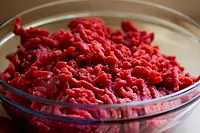Kratom Linked to Nationwide Salmonella Outbreak

An outbreak of Salmonella infections caused by products containing kratom is being investigated by the U.S. Food and Drug Administration (FDA) and the Centers for Disease Control and Prevention (CDC).
Kratom is a natural plant native to Thailand, Malaysia, Indonesia, and Papua New Guinea. The herb is believed to help relieve various ailments including anxiety, depression, pain and even opioid addition.
Despite its perceived health benefits, the consumption of kratom has led to a Salmonella outbreak that has affected at least 28 people--ages 6 to 67--in 20 states in the U.S. Eleven of those people have been hospitalized. Of those hospitalized, 73 percent of them say they did consume kratom in the form of pills, capsules, powder or tea.
According to an official statement released by the FDA, kratom may not appear as an ingredient on those product labels. However, the U.S. Drug Enforcement Agency (DEA) does identify kratom by a plethora of other names: Mitragyna speciosa, mitragynine extract, biak-biak, cratom, gratom, ithang, kakuam, katawn, kedemba, ketum, krathom, krton, mambog, madat, Maeng da leaf, nauclea, Nauclea speciosa, or thang.
Previously, the DEA did propose banning the sale of kratom to the American public, calling it a public safety hazard. That proposal was later withdrawn
No manufacturer, brand or supplier of kratom-containing products has been named in relation to this outbreak as of yet, but the FDA and CDC are working to identify the source.
Sign up for Food Safety Magazine’s bi-weekly emails!
Subscribe to our podcast: Food Safety Matters!
Looking for quick answers on food safety topics?
Try Ask FSM, our new smart AI search tool.
Ask FSM →






